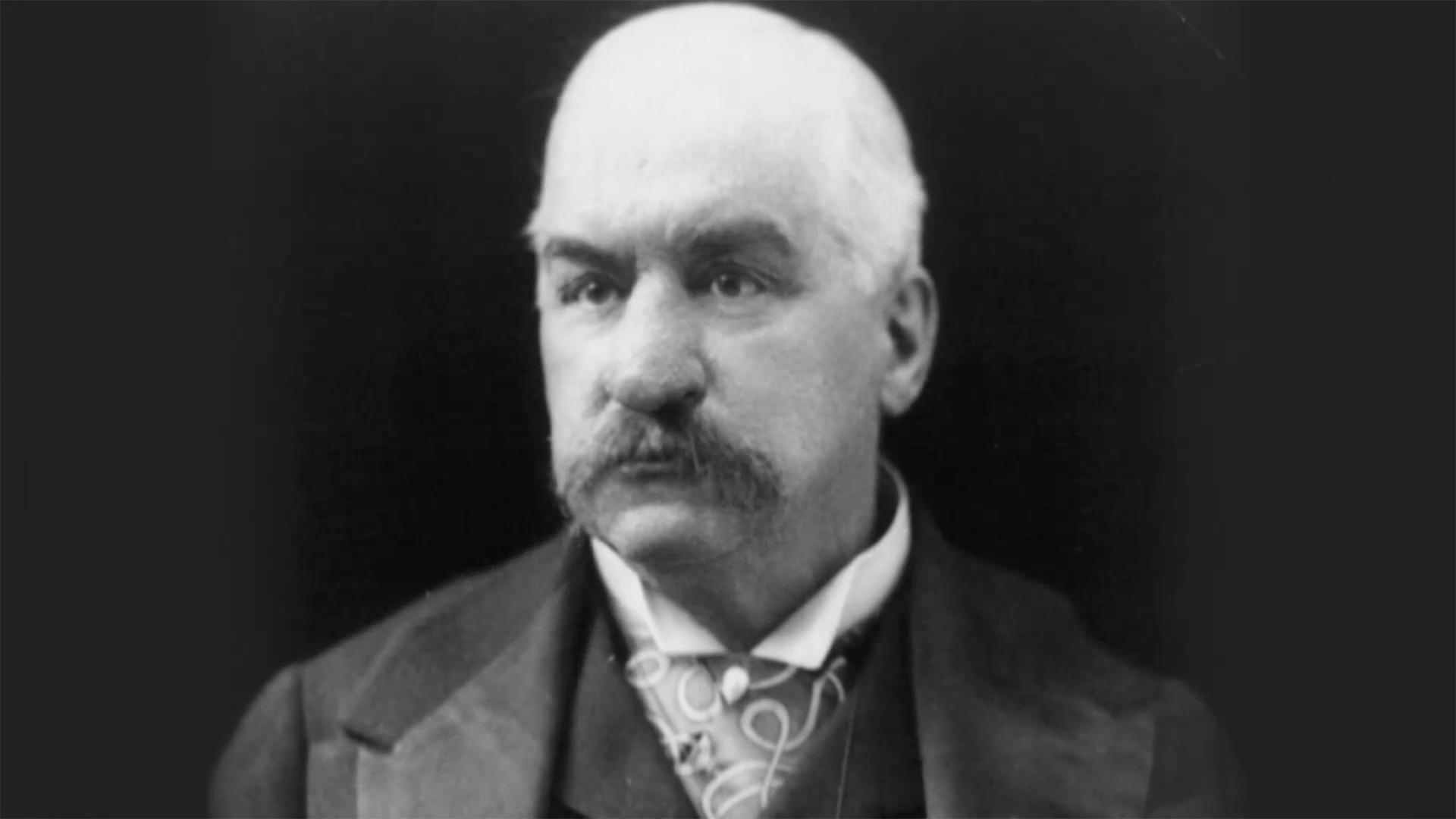Was J.P. Morgan A Jew? Unveiling The Truth Behind The Banking Titan
J.P. Morgan is one of the most iconic names in the history of finance and banking, but questions about his background, including whether he was Jewish, have long circulated. This article delves into the life of J.P. Morgan, exploring his heritage, achievements, and legacy. By the end of this piece, you'll have a clear understanding of whether J.P. Morgan was indeed Jewish and why this topic matters in the context of history and modern finance.
As one of the most influential figures in American history, J.P. Morgan's contributions to banking and industry are undeniable. However, the question of whether he was Jewish has sparked curiosity among historians, researchers, and enthusiasts alike. This article aims to provide a comprehensive analysis of his background and clear up misconceptions surrounding his ancestry.
Understanding J.P. Morgan's origins is essential not only for historical accuracy but also for appreciating the broader context of his impact on global finance. This article will examine his family lineage, debunk myths, and provide credible sources to support our findings. Let's embark on this journey of discovery together.
Table of Contents
- J.P. Morgan's Biography
- Family Background and Heritage
- The Myth: Was J.P. Morgan a Jew?
- Historical Context of Jewish Banking
- J.P. Morgan's Contributions to Finance
- Legacy and Impact on Modern Banking
- Common Misconceptions About J.P. Morgan
- Sources and References
- Conclusion and Final Thoughts
- Frequently Asked Questions
J.P. Morgan's Biography
Early Life and Education
John Pierpont Morgan, better known as J.P. Morgan, was born on April 17, 1837, in Hartford, Connecticut. He came from a family deeply rooted in finance, with his father, Junius Spencer Morgan, being a prominent banker. J.P. Morgan's early life was marked by a rigorous education, which included studies in Germany and Switzerland. His exposure to international finance at a young age laid the foundation for his future success.
After completing his education, J.P. Morgan began his career in banking, eventually founding J.P. Morgan & Co., one of the most influential financial institutions in history. His ability to navigate complex financial landscapes and secure major deals made him a powerhouse in the industry.
Biographical Data
| Full Name | John Pierpont Morgan |
|---|---|
| Date of Birth | April 17, 1837 |
| Place of Birth | Hartford, Connecticut |
| Occupation | Banker, Financier, Industrialist |
| Notable Achievements | Founder of J.P. Morgan & Co., key figure in the U.S. financial system |
Family Background and Heritage
J.P. Morgan's family was Protestant, specifically Episcopalian. His father, Junius Spencer Morgan, was a successful financier who worked closely with prominent European banks. The Morgans were not of Jewish descent, as evidenced by their deep ties to the Protestant community and their involvement in banking circles dominated by non-Jewish families.
Understanding J.P. Morgan's family background is crucial in addressing the question of his Jewish heritage. His ancestors were primarily from England, and their lineage can be traced back to the early settlers of New England. This historical context provides clarity and dispels myths surrounding his ancestry.
The Myth: Was J.P. Morgan a Jew?
Addressing the Misconception
The misconception that J.P. Morgan was Jewish likely stems from the prominent role Jewish families played in the banking industry during the 19th century. Names like Rothschild and Warburg dominated European finance, leading some to assume that all influential bankers were Jewish. However, J.P. Morgan's background is well-documented, and there is no credible evidence to suggest he was of Jewish descent.
Key points to consider:
- J.P. Morgan's family was Protestant, not Jewish.
- His ancestors were English settlers in New England.
- His father and grandfather were involved in Protestant banking circles.
Historical Context of Jewish Banking
The Role of Jewish Families in Finance
During the 19th century, Jewish families played a significant role in the development of modern banking. The Rothschild family, for example, established a global network of banks that influenced economies worldwide. This prominence led to widespread recognition of Jewish contributions to finance, which may have contributed to the misconception about J.P. Morgan's background.
It's important to recognize the distinct contributions of Jewish and non-Jewish bankers during this period. While Jewish families excelled in international finance, Protestant families like the Morgans also made significant strides in the industry. Understanding this historical context helps clarify the origins of banking dynasties.
J.P. Morgan's Contributions to Finance
Key Achievements in Banking
J.P. Morgan's contributions to finance are legendary. He played a pivotal role in stabilizing the U.S. economy during financial crises, including the Panic of 1907. His ability to orchestrate mergers and acquisitions transformed industries such as steel and railroads. Some of his notable achievements include:
- Founding U.S. Steel, the first billion-dollar corporation.
- Leading the consolidation of railroad companies into a cohesive network.
- Serving as a key figure in the development of modern investment banking.
These accomplishments solidified his reputation as one of the most influential figures in the history of finance.
Legacy and Impact on Modern Banking
Shaping the Future of Finance
J.P. Morgan's legacy extends far beyond his lifetime. The company he founded, J.P. Morgan & Co., evolved into JPMorgan Chase, one of the largest financial institutions in the world. His innovative approaches to banking and finance continue to influence modern practices, including risk management, corporate mergers, and global financial strategies.
His impact on the U.S. economy cannot be overstated. During times of crisis, J.P. Morgan's interventions often stabilized markets and restored confidence. His leadership style and strategic vision remain relevant in today's complex financial landscape.
Common Misconceptions About J.P. Morgan
Separating Fact from Fiction
Throughout history, myths and misconceptions have surrounded J.P. Morgan's life and career. Some of the most common include:
- Myth: J.P. Morgan was Jewish.
- Reality: He was Protestant, with English ancestry.
- Myth: J.P. Morgan single-handedly controlled the U.S. economy.
- Reality: While influential, he operated within a broader network of financiers and industrialists.
Addressing these misconceptions provides a more accurate understanding of J.P. Morgan's contributions and legacy.
Sources and References
This article draws on a variety of credible sources to ensure accuracy and reliability. Some key references include:
Conclusion and Final Thoughts
In conclusion, J.P. Morgan was not Jewish. His Protestant heritage and English ancestry are well-documented, and his contributions to finance remain unparalleled. By exploring his life, achievements, and legacy, we gain a deeper appreciation for his role in shaping modern banking.
We encourage readers to share this article, leave comments, or explore other content on our site. Understanding the history of finance and its key figures is essential for anyone interested in economics, banking, and industry. Together, let's continue to uncover the truths behind history's most fascinating figures.
Frequently Asked Questions
What was J.P. Morgan's religion?
J.P. Morgan was Episcopalian, a Protestant denomination.
Did J.P. Morgan work with Jewish bankers?
Yes, J.P. Morgan collaborated with Jewish bankers and other financial leaders during his career. His professional relationships were based on mutual respect and shared goals.
What is J.P. Morgan's lasting legacy?
J.P. Morgan's legacy includes the founding of J.P. Morgan & Co., his role in stabilizing financial crises, and his influence on modern banking practices. His contributions continue to shape the global financial landscape today.


